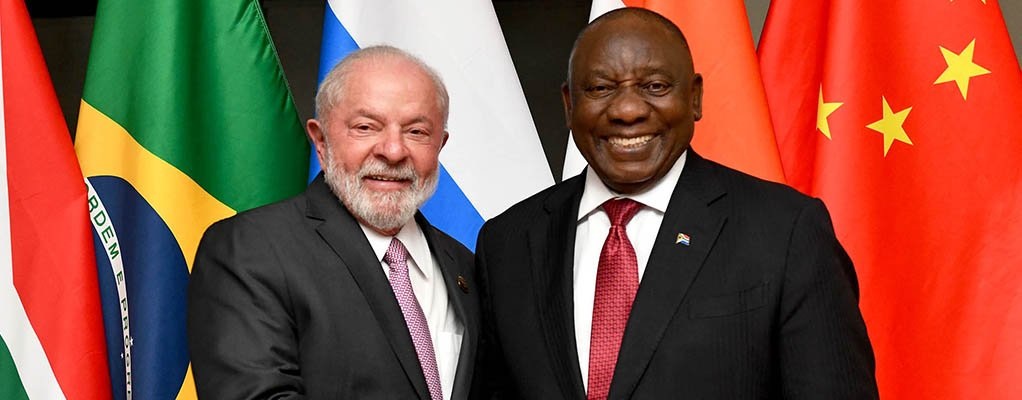Brazil is preparing to officially join South Africa’s ongoing legal case against Israel at the International Court of Justice (ICJ), which alleges that Israel has committed acts of genocide in Gaza.
According to online media reports, this significant move was confirmed by the Brazilian Foreign Ministry on Wednesday.
It stated that the country is in the final stages of completing the necessary legal documentation to support South Africa’s case at the United Nations’ principal judicial body.
South Africa initially brought the case in 2023, accusing Israel’s military operations in Gaza of causing widespread civilian casualties and extensive damage to vital infrastructure such as hospitals, schools, and shelters.
These military actions followed Israel’s response to attacks launched by Hamas, the Islamist militant group that controls Gaza.
However, South Africa’s complaint asserts that the scale and nature of Israel’s campaign violate international law.
This is specifically the 1948 Genocide Convention, which commits signatory states, including Israel and South Africa, to preventing and punishing acts of genocide.
The case emphasizes that Israel’s attacks have targeted armed militants.
It also emphasizes that the attacks have inflicted disproportionate suffering on non-combatants and essential civilian facilities, thereby meeting the legal criteria of genocide as defined by international statutes.
By joining South Africa’s lawsuit, Brazil is taking a firm stance alongside other countries advocating for rigorous international examination of Israel’s conduct amid the protracted and volatile Israeli-Palestinian conflict.
The ICJ, based in The Hague, is the main judicial authority for resolving disputes between states under international law.
The court has accepted South Africa’s application and has already ordered provisional measures requiring Israel to halt actions that could further breach the Genocide Convention.
On the other hand, it has yet to deliver a definitive verdict.
These interim rulings are designed to minimize further harm while the court undertakes a thorough review, including investigating evidence submitted by both parties and other relevant stakeholders.
Brazil’s decision to join the case sends a clear diplomatic signal regarding its concerns about the humanitarian crisis in Gaza and the alleged violations of international law.
It aligns Brazil with a broader coalition of countries calling for accountability and adherence to human rights standards in the conflict.
This development could intensify global pressure on Israel to justify its military strategy and conduct in Gaza, or alternatively, to seek peaceful and lawful resolutions to ongoing hostilities.
The legal pursuit at the ICJ may have far-reaching implications beyond the immediate conflict zone.
It contributes to establishing precedents in international law concerning state responsibility for civilian protection during armed conflicts, particularly when allegations of genocide are involved.
The case also highlights the role of international institutions in addressing grievances between nations and protecting vulnerable populations from mass atrocities.
Brazil’s Foreign Ministry underlined that while it supports the principles of sovereignty and security, these must be balanced with respect for international norms prohibiting genocide and ensuring the protection of all civilians.
The ministry reiterated Brazil’s commitment to multilateral diplomacy and peaceful conflict resolution, advocating for a negotiated end to violence in the region.
In the broader geopolitical context, Brazil’s alignment with South Africa’s legal challenge reflects shifting dynamics within international relations regarding the Israeli-Palestinian issue.
Latin American countries, along with some African and European nations, have increasingly voiced concerns over civilian casualties and humanitarian consequences arising from prolonged conflicts.
Brazil’s participation could encourage other countries to consider similar legal or diplomatic actions, thereby increasing international scrutiny.
As the ICJ process unfolds, key issues to be evaluated include:
- whether Israel’s military campaign constituted intentional actions aimed at destroying a particular group in whole or in substantial part,
- the degree of proportionality exercised in military operations, and,
- the effectiveness of measures taken to minimize civilian harm.
The court will also examine evidence about the context, patterns of conduct, and statements made by involved parties to determine if the threshold of genocide has been met.
In summary, Brazil is poised to formally back South Africa’s 2023 lawsuit at the International Court of Justice accusing Israel of genocide in Gaza.
This is reportedly due to the devastating impact of its military actions on civilians and infrastructure.
This collaboration amplifies international demands for accountability and adherence to the 1948 Genocide Convention.
The ICJ has imposed provisional measures on Israel, the final judgment remains pending.
On the other hand, carrying significant legal and political ramifications for Israel, Brazil, South Africa, and the wider global community engaged in the pursuit of justice and peace in the Middle East.







